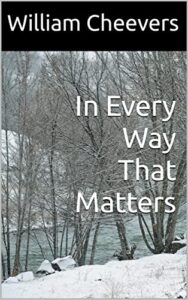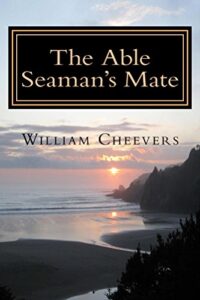Passage on a Bridge received a 4+ star review, making it an IndieReader Approved title.
Following find an interview with author William Cheevers.
What is the name of the book and when was it published?
Passage on a Bridge (ASIN: B09K6QXKDD; ISBN-13: 979-8752645563; Published by KDP; October 23, 2021.
What’s the book’s first line?
The academy was a collection of red brick buildings near a small Appalachian town in Pennsylvania once known for coal mines.
What’s the book about? Give us the “pitch”.
Passage on a Bridge is a fictional memoir of the Great Depression narrated by a man called Jim. He seeks adventure riding the rails with a prep school dropout who calls himself Jacks and a Texas panhandle Irishman who goes by Murph. An old hand called Booker and boxcars and transient camps, agricultural fields and penny auctions, a Mexican cantina, Cajun cafes and long talks into the night are the classrooms of Jim’s education.
What inspired you to write the book?
I have long admired the men and women who endured the Great Depression and fought and maintained the home front during World War II. I wanted to write something that would show in a graphic way how these people were shaped by hardship and deprivation as well as the innocent, the unscrupulous and those who could not endure. I have tried to tell this story through the eyes of one man who rode the rails seeking adventure and finding much more.
What’s the main reason someone should really read this book?
To tread on Shakespeare’s ground as we all do, the answer is to remind us that history is prologue and to remind us that self-interest is not always the rule.
What’s the most distinctive thing about the main character?
The character trait that defines the man called Jim is open-mindedness. It is the indispensable trait that allows him to grow from an aimless teenager into a compassionate and knowledgeable adult. Jim reminds me of Robert Jordon in For Whom The Bell Tolls, except that he is not doomed. Still, I have the impression that Jim would sacrifice himself for his comrades if that became necessary.
When did you first decide to become an author?
I first started writing in college but the pursuit of my education in microbiology to a Ph.D. degree sort of relegated my writing to the status of a hobby. I am now a retired university professor writing fiction in a more structured way (about six hours a day). I have written two other historical novels (The Able Seaman’s Mate and In Every Way That Matters). IR reviewed In Every Way That Matters and gave it a 4+ rating and it also received a Featured Kirkus Review. I have also written six mystery novels and two short story collections featuring Chicago private investigator Frank Lydecker in the transitional world of the 1950s.
Would you go traditional if a publisher came calling? If so, why?
The honest truth about being an Indie writer is that I have been unable to secure a traditional publisher or an agent. I am reminded of an agent a few years ago who took the trouble to answer my query. I think he was honest in saying that my writing sample showed promise and brutally honest in saying that my biographic information indicated that I was too old to establish a body of work required by a publisher over the long haul. So, I made my decision in college but I’m having a great time now writing as an Indie (although it is hard, hard work) and hope to sell a few more books along the way. The best part is writing without a deadline which I constantly had to do with scientific papers and grant applications. The not so good part is the absence of editing by someone with a stake in the final product.
Which writer, living or dead, do you most admire?
The writer I most admire is Hemingway and For Whom The Bell Tolls is the book I wish I could have written.



